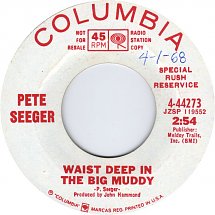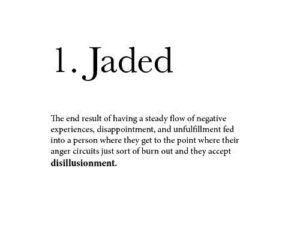
The bar is high for home buyers and renters.
Editor’s note: Today we mark Juneteenth. Juneteenth is a federal holiday in the United States commemorating the emancipation of enslaved African Americans. Deriving its name from combining June and nineteenth, it is celebrated on the anniversary of the order by Major General Gordon Granger proclaiming freedom for enslaved people in Texas on June 19, 1865.
Recently, I bumped into a friend who runs an essential government agency.
I asked him how things were going. He sighed. It was a loooooong and loooooud sigh.
“I’m understaffed and the staff I have is underpaid,” he said. “Workers can’t afford to live here anymore. We’re doing the best we can, but it’s hard.”
Then he mentioned a news story that broke that morning. He quoted from it, and I was stunned.
Here’s the synopsis from the Sun-Sentinel:
“Renters in South Florida need to make over $100,000 in order to rent comfortably in the tri-county area, according to a new study.
In order to avoid paying more than 30% of their income toward rent, the average household would need to make at least a yearly income of $112,183 to afford the typical rent in South Florida, the study conducted by researchers at Florida Atlantic University, Florida Gulf Coast University and University of Alabama revealed.
“So, if you make less than $112,000 and you live in the average rental place, you are rent burdened,” said Ken Johnson, real estate economist at Florida Atlantic University. “It shows how unaffordable housing is.”
For those making $67,310.30 and under, they would be considered “severely cost burdened,” or dedicating at least 50% of their income to rent.”
Yes, I know things are rough out there. I have kids who pay big time rent—more than my mortgage for far less. Buying something— even a small condo— seems like a pipe dream for a whole generation.
Still, the figures jumped out at me; $112,000 is a big-time salary. How many workers make that kind of money—even if they are married, have a roommate or a significant other?
New teachers in Palm Beach County make $49,133; that’s among the top starting salaries in the state and it doesn’t buy you much. But wait, it doesn’t get better. If you have a master’s degree you can make a whopping $52,133 to start, and if you have a doctorate the salary balloons all the way up to $55,133.
So where do these essential workers live? What about police and firefighters? How about nurses? Retail workers, restaurant staff? What about the people who keep your A/C running, fix your car, patch your roof, or work retail?
What about our children who go off to school and want to come home and begin their careers in Boca or Delray?
Sure, we can blame “greedy developers” for building luxury housing, but what do we think happens when land in east Delray costs between $10- $12 million an acre (not a typo) and buyers are willing and apparently able to pay well over $1,000 a square foot for condos anywhere near downtown. Even out west, where it used to be affordable, prices have soared for renters and buyers.
Add to these powerful —and very real— market forces the lovely philosophy of NIMBYism; which is the knee jerk opposition to every development project that comes before your local council or commission; regardless of whether they meet land use rules.
In addition, the cost of construction has escalated thanks to inflation, and the long approval process found in most cities adds costs as well/
It’s no wonder that Palm Beach County is said to have a net deficit of 20,000 housing units.
But wait a minute, didn’t voters pass a $200 million housing bond in 2022?
Yes, they did. And that equates to $10,000 in gap financing per unit, which while helpful, is a pittance in the scheme of things. There are other issues with the bond, but that’s for another column.
Regardless, there’s no question we have a problem. It may be the challenge of our time, because housing is not a nice thing to have, it’s essential.
As a result, there are some efforts being made.
The state has passed legislation seeking to override local zoning rules and add more housing. I’ve talked to several developers and their views are mixed as to whether units will be produced because of the legislation.
So while the state may have good intentions, if we want to see action, we will have to act locally.
But first, we must decide that we want to solve this problem.
There are people who don’t want to do anything, in other words they are in the boat so pull up the ladder.
We’ve all seen the opposition to apartments and other multifamily housing. The most recent Delray election was about Old School Square and whether candidates were for or against adding places to live for people who work in our community or nearby.
Others acknowledge the issue but feel that it should be solved by someone else—namely another city.
I am not in that camp.
In fact, I am passionately not in that camp. I believe that the people who serve our community should be able to live here. I also believe that if they were given a chance to live here, they would enhance our community by volunteering, voting, paying taxes, supporting local businesses etc.
As for density, it shouldn’t be a dirty word. It’s a more nuanced conversation than labeling it either good or bad. And we need to have that conversation because without adding to our supply, prices will continue to soar, making it hard for essential workers to get traction in our community. That hurts families, businesses, and all of us who rely on services, which is everyone.
It’s about design, not density, my friends. We learned that during the dozens of conversations and workshops we had during the downtown master plan sessions 20 years ago. Then we promptly forgot those lessons.
I know, I know, traffic, there’s too many people living here etc. etc.
Well, here’s my response: can we talk about it? Can we attempt to analyze the situation and craft policies that make sense. Can we use data and get past the tired mud slinging around this important issue?
We must bring planning back.
Visioning too.
Of course, we should not overwhelm our local infrastructure and we must consider mobility.
We should not allow tall buildings downtown. We should insist on quality design and plan, plan, plan.
But to say nobody can live here unless they can cough up tons of money ignores our need for nurses, teachers, restaurant workers, police officers, firefighters, service workers etc.
It’s the law of supply and demand.
Limit supply and watch prices soar. We happen to live in a desirable place, so there’s demand. We do need to make sure that our community has a place for the workforce to live, otherwise we become a playground for the rich.
As for traffic, I would argue that much of it is created by a workforce that has to drive long distances to get to their jobs in our coastal cities.
I live just off Lake Ida Road. When the 284-unit Delray Station was approved, many of my neighbors were concerned that Lake Ida would be gridlocked.
I can understand the concern because getting across Lake Ida Road between 7:30 and 8 a.m. is the most dangerous part of my day— during the school year at least. Now it’s easy.
But I’ve made it a point to go west to see how many cars are leaving Delray Station at “rush” hour. I’ve never seen more than 2-3. This morning there was one car.
These days people may work remotely, or they work a hybrid schedule, or they work staggered shifts.
Delray Station has not added much to Lake Ida’s traffic woes. It’s commuters not residents who are clogging our roads.
By the way, a one-bedroom at Delray Station can be yours “from” $2,550, 3 bedrooms are $3,428. It’s not inexpensive to live off I-95 and Congress either. They are very nice apartments but that’s a lot of money.
When it comes to development, we get emotional and it’s understandable—to a point.
Again, we should never mess with height limits downtown; our scale is our charm. But we need to figure out where our workforce can live. And we don’t have the luxury of saying, “the heck with that, they can live in the Everglades, or in Port St. Lucie, or in Boynton Beach or Lake Worth Beach.”
We should want the people who serve this community to be able to live in this community.
Back in 2005, the original Congress Avenue plan strived to address this issue. That’s right, 18 years ago, there was already a housing affordability crisis. The plan allowed for a mix of uses on the Congress corridor, to take pressure off the downtown, build the tax base, and give workers an opportunity to live in Delray Beach. Traffic was a consideration and road capacity was studied. It was determined that Congress could handle additional development. It still can.
The Bexley Park neighborhood (the city bought the land and put it out to bid for workforce housing), the creation of the Community Land Trust and other initiatives were also attempts to create opportunities for workers and families. Good efforts all—but not enough to meet either the need or the demand for housing.
So where do we go from here?
I would suggest a visioning process, in which we as a community, sit down and have a conversation that allows for emotions but makes room for facts.
It is time to have a serious discussion about housing. The problem won’t be solved overnight, and market forces are strong. But if we continue to restrain supply, we will continue to have a problem. Mobility needs to be a big part of the conversation, not to mention water and environmental sustainability.
Sprawl is not the answer to any of these concerns, nor is paving over what’s left of the Ag Reserve.
Again, we should want the people who serve this community to be able to live here. As someone recently said, “if your barista can’t live within 30 minutes of the coffee shop, you don’t live in a community, you live in a theme park.”
Same for police officers, firefighters, nurses, teachers, servers etc.
Delray has always prided itself on tackling challenges. This is a big one, but pretending it doesn’t exist or hoping that a neighboring community will solve our needs won’t work.




